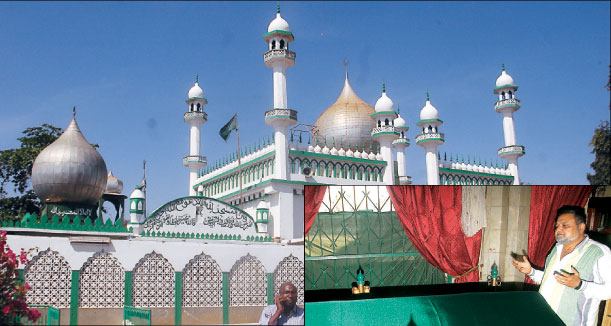×
The Standard e-Paper
Stay Informed, Even Offline
 |
| The Mackinon Road Mosque. INSET: Musa Ahmed prays at the Mosque, of which he is in charge. [PHOTOS: OMONDI ONYANGO] |
By ISHAQ JUMBE
The highway town of Mackinnon Road with its old train station is surrounded by controversy.